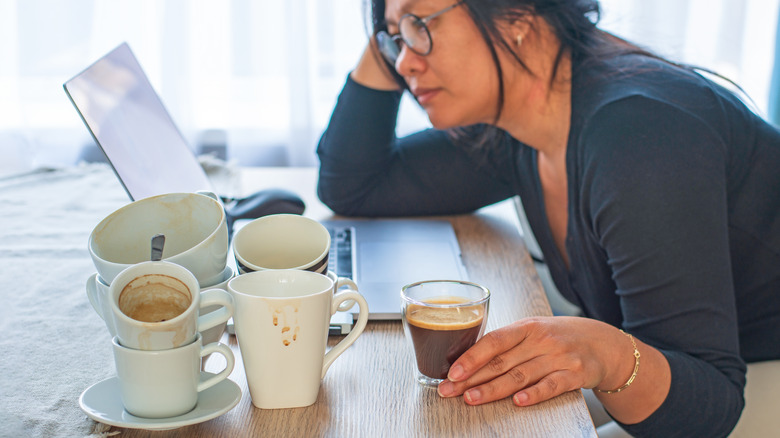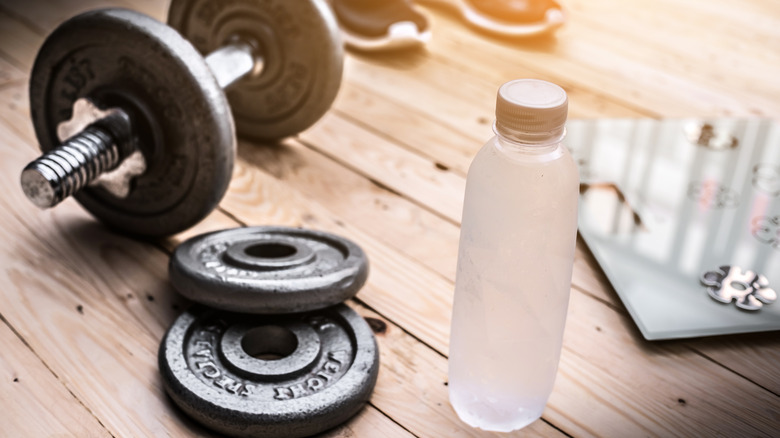How To Reduce The Effects Of Caffeine When You've Had Too Much
Ever wonder how much caffeine is too much? For adults, the U.S. Food and Drug Administration (FDA) recommends limiting yourself to 400 milligrams per day, but this number isn't set in stone. Some people can drink coffee around the clock and feel perfectly fine, while others may experience jitters, anxiety, or headaches after just a few sips. An 8-ounce cup of java has around 80 to 100 milligrams of caffeine, meaning that the average adult could safely drink four or five cups per day, per the FDA. However, caffeine can also be found in green tea, soda, energy drinks, chocolate, and some medications.
This natural stimulant can boost your energy and stamina, enhance mental focus, and reduce inflammation, notes Harvard T.H. Chan School of Public Health. In the long run, it may help protect against diabetes, stroke, heart disease, depression, and other ailments. However, too much caffeine can take a toll on your health, leading to insomnia, increased blood pressure, and heart palpitations. The risks are even higher for people with anxiety disorders, cardiovascular problems, or hypertension, warns the Cleveland Clinic.
Luckily, there are ways to reduce the side effects of caffeine and feel like yourself again. This stimulant has a half-life of about five hours, meaning that it leaves your body within 10 hours or so, explains Cleveland Clinic. So what can you do in the meantime?
What to do when you've had too much caffeine
It's easy to go overboard on caffeine when you're drowning in work. You drink a cup of java, eat a piece of chocolate, gulp another cup of coffee, and so on. At some point, you begin to feel jittery. Your heart rate goes up, your stomach hurts, and your hands are shaking. Sound familiar?
One way to address these problems is to increase your water intake. Dr. Jasmine Shaikh recommends drinking a glass of water for every cup of java to prevent dehydration (via MedicineNet). Alternatively, sip on electrolyte drinks.
Get your body moving as soon as you have some free time. Physical activity may help relieve caffeine-induced anxiety, according to a 1998 study published in Medicine and Science in Sports and Exercise.
Last but not least, you may try meditation, deep breathing, yoga, and other relaxation techniques to calm your mind and reduce tension after drinking too much coffee.


